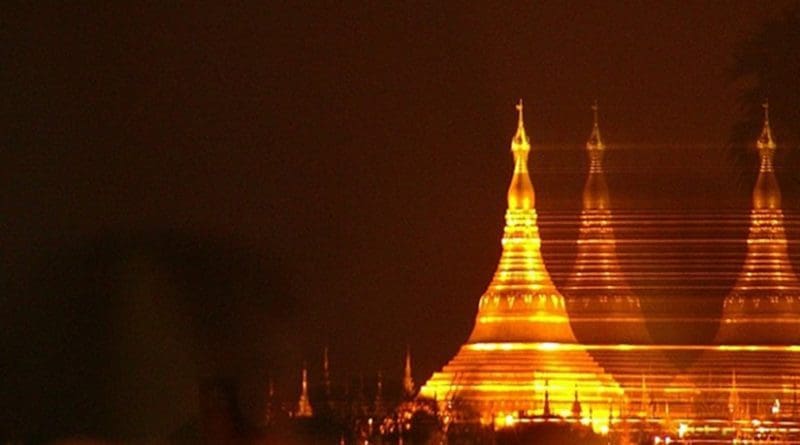Myanmar Votes: Why It Matters – Analysis
Myanmar is making a transition towards democracy with an election on 8 November, 2015. The elections are expected to be free, if not completely fair. Countries, including China and India are watching the elections keenly with a hope that they will provide for a stable and strong government.
By Rajiv Bhatia*
The parliamentary elections in Myanmar are due on Sunday, 8 November. These elections are important for Myanmar, her neighbours including India, and the region as a whole.
They will determine whether Myanmar will continue on the path of a military-stipulated ‘disciplined democracy’ or shift gears towards a democracy as advocated by Aung San Suu Kyi. Therefore, its significance is not lost on anybody.
The arithmetic of the elections, however, is somewhat complicated. The elected MPs will choose a new president only in March 2016. The parliament’s two houses — the Amyotha Hluttaw and Pyithu Hluttaw — have a total of 664 seats. Of them, 25% are reserved for the military. The 8 November elections thus are for 498 seats only. Which of the main national parties – the National League for Democracy (NLD) and the Union Solidarity and Development Party (USDP) – and of the nearly 90 other parties, will succeed in scoring well?
To begin with, elections are a rarity in Myanmar. The Sunday elections will be the third one since 1990. After the people’s discontent against the military dictatorship imposed by General Ne Win in 1962 led to much bloodshed, the army organised the first general elections in 1990. People shocked the generals by giving a landslide victory to the NLD led by Kyi. However, the army rejected the result and went on to rule the country for two decades.
In November 2010, a highly controlled election was staged, but without participation of Kyi’s NLD. The army-backed USDP won a decisive victory. The election was considered ‘neither free, nor fair’.
The upcoming election, however, is different. NLD is taking part in a big way, and Suu Kyi is attracting huge crowds. The commander-in-chief has pledged to respect the outcome, and the election is under a close watch of the international observers and media. Although not without flaws, the electoral process is expected to be free, if not completely fair.
Another major issue is the mixing of religion and politics, as advocated by the Buddhist clergy represented by Ma Ba Tha. This has soured Buddhist-Muslim relations in Myanmar. Will the nation listen to them or turn to ‘Mother Suu’ – as she is called in rural areas?
Finally, there is the unresolved question of ethnic reconciliation. Despite the recently concluded National Ceasefire Agreement, the nation is far from its goal of the Burman majority and ethnic minorities living in peace in a ‘federal union’.
Observers believe that NLD is heading towards gaining either another decisive victory or the status of the single largest party. But should USDP win about 25% of total seats, it can, armed with military support, elect a president of its choice. Both the situations will create dilemmas for Kyi. In the event of a clear victory, she will still have to accommodate the generals who have a lock on much of state power.
Besides, the constitution bars her from being a presidential candidate on the controversial ground that her children have foreign citizenship. She had recently declared that in case the NLD wins, she would lead the government, whether or not she is the president. The military may not accept her as a de-facto president.
Prevailing uncertainty causes much anxiety in the neighbourhood. China, with its huge stakes and a close relationship, is preparing to deal with all situations. Its recent hosting of Suu Kyi and her substantive meeting with President Xi Jinping indicates Beijing’s reading that her star is rising. The Chinese have been unhappy with the current president Thein Sein for having charted a relatively independent foreign policy, but they are also sensitive to the certainty that the military will still play a crucial role.
India is watching the transition in Myanmar with a mixture of interest and concern. It will deal with whoever comes to power, but it hopes for a stable and strong government. Only then can New Delhi pursue its agenda of a close political, economic and security cooperation that is critical for stability in India’s North East, and for the success of its ‘Act East’ policy.
Unlike in the past, western nations including the U.S. seem to be maintaining some distance from NLD. They want a clean election, and they will be ready to deal with the new rulers, whoever they may be.
The people of Myanmar will shortly deliver a verdict which will be of much consequence. It will clarify not only the choice of the next president and complexion of the new government, but also its domestic, economic and foreign policy. It is a verdict worth watching.
About the author:
*Rajiv Bhatia is a career diplomat, serving India for 37 years. He was Ambassador/High Commissioner in Kenya, Myanmar, Mexico and South Africa. His new book ‘India–Myanmar Relations: Changing Contours’ has recently been published by Routledge.
Source:
This feature was written for Gateway House: Indian Council on Global Relations.

